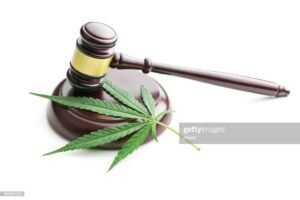I watched the last episode of We Own this City on HBO and largely enjoyed it. It’s based on a book by Baltimore journalist Justin Fenton and created by David Simon of The Wire fame. It focuses on the Gun Trace Task Force led by Sergeant Wayne Jenkins in Baltimore.
The Wire is a great show about the problems of drugs in Baltimore specifically but all across our nation and, indeed the world. It doesn’t sugarcoat the violence and spares neither the police nor the drug dealers. We Own this City continues in the same manner and I came away discouraged about the world in which we live.
That being said, I think it’s a good show and well-worth watching, particularly by those invested in perpetuating the War on Drugs.
The Premise of We Own this City
The Gun Trace Task Force in Baltimore engaged in criminal activity that resulted in many of its members being given lengthy prison sentences, particular their leader, Jenkins. They stole money, stole and resold drugs, took money from taxpayers for overtime they didn’t actually perform, and engaged in generally despicable and illegal behavior with impunity. Bullying, harassing, assaulting, framing, and otherwise attacking the citizens of Baltimore.
The six-episode mini-series details their behavior in horrifying detail and ends with the sentencing phase of their crimes.
The Quality of We Own this City
The acting, writing, sets, camera work, and everything else in We Own this City is excellent. It’s a slick and well put-together show. It’s a bit jarring seeing actors like Jamie Hector in role-reversal from The Wire but I managed to overcome that eventually.
The biggest problem with the quality of the show is the non-linear time flow. I understand they wanted to start with the arrest of Jenkins but the constant back-and-forth with time made the show difficult to process. They tried to make it easier by having Jon Bernthal, who played Jenkins with frightening aplomb, adjust his facial hair indicating the time frame.
The display of dates on the screen didn’t really help me follow the story. Is this happening before the scene we just saw? After? When is this? Has the previous scene we just watched already happened when we’re watching this scene or is it going to happen later? Very confusing. That’s pretty much my only problem with the show.
Who Watched We Own this City?
I wonder if the target audience of We Own this City actually watched it or is it a case of preaching to the choir. I have no doubt Simon and Fenton are passionate. They well-understand the War on Drugs and the horrors it begat.
The sad truth is the people who will watch this show already understand the problems associated with the War on Drugs. The people who must be convinced of its folly are not going to watch, at least I don’t think so. They don’t want to see beloved police officers turned into nothing more than the single largest criminal enterprise in the history of the world. Hyperbole? No, I’m afraid not. Police are the worst criminals in the United States.
Treat Williams Daggers the Problem
Now, having read the previous paragraph I feel certain you think I’m anti-police. Let me explain why that is not the case.
Treat Williams plays Brian Grabler, a retired officer who understand the real problem. He tries to explain its nature to Wunmi Mosaku. She plays Nicole Steele an attorney from the Civil Rights Division of the Justice department.
Near the end of the last episode, Grabler asks Steele what’s not in the report detailing the many systemic problems in the Baltimore Police Department. What’s not in the report? She doesn’t understand and he must lead her to the answer.
The problem isn’t law enforcement officers. It’s not a legal system willing to stomp the rights of citizens. It’s not the violence on the streets committed by those plying the drug trade and those trying to stop them. It’s not that police departments are completely at odds with the communities they serve, enemies unwilling to cooperate.
The problem is the War on Drugs. It’s the root cause of everything else. Its corrupted our legal system. Its corrupted our police departments. Its corrupted city hall. The War on Drugs hasn’t stopped drugs, its just created an army of amoral criminals. Police officers, lawyers, judges, politicians. All engaged in criminal activity wrapped in good intentions and driven by the money the drug trade creates.
The system forces law enforcement officers to become criminals. Judges to twist the Constitution into a laughable parody of words used to enact that which it is designed to prevent. Politicians to actively work against their constituents.
Conclusion
We Own this City is an excellent show marred by a confusing timeline. It’s also a show that clearly illuminates the errors of the War on Drugs. Sadly, the people who need to understand the root cause of the problem have little interest in fixing it. Those who understand the problem don’t have the power to fix it.
Tom Liberman



















